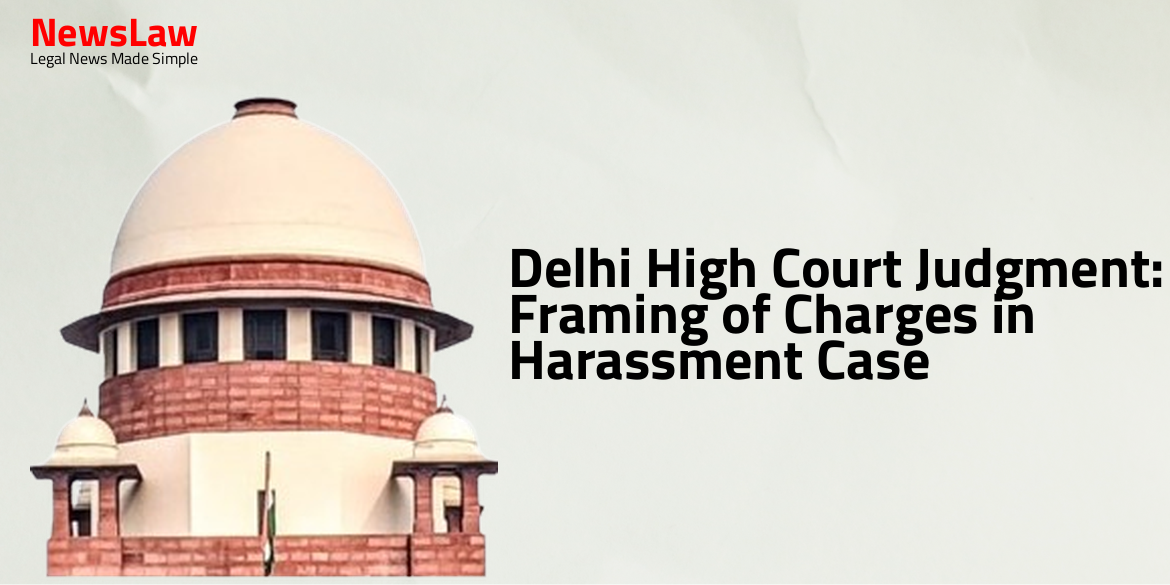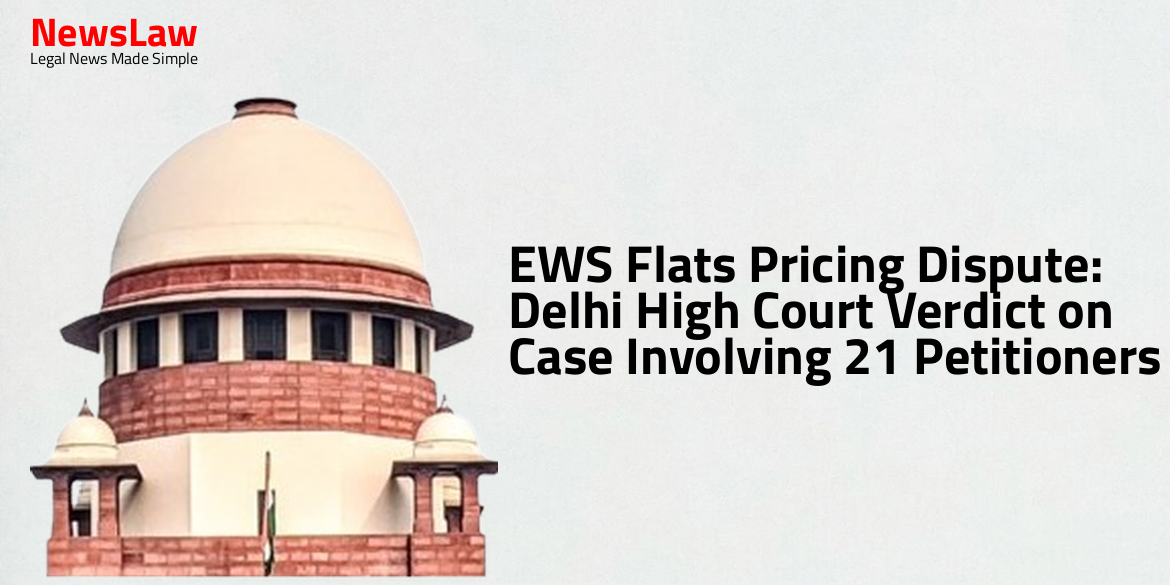In a recent Delhi High Court judgment, the court addressed the issue of framing charges in a harassment case. The case involves allegations of mental harassment by the victim against the accused. The court’s decision has significant implications for the trial proceedings. Stay informed with the latest updates on this important legal development.
Facts
- The FIR was filed based on the victim’s complaint about mental harassment by the petitioner and a co-accused.
- The harassment included remarks about the victim’s inner-wear, gestures, and offensive language that offended her dignity.
- The petitioner, who was the victim’s gymnastics coach, did not apologize but instead threatened her when she complained to the Chief Coach.
- The trial court discharged the petitioner, but it is argued that this decision was erroneous and the matter should proceed to trial.
Analysis
- At the stage of framing of the charge, the court assesses the probative value of materials without delving into a deep analysis.
- The accused’s defense is not considered when seeking discharge; only prosecution’s evidence is evaluated.
- The court must focus on whether there is a ground for presuming the offence rather than a ground for convicting the accused.
- The judge assumes the truthfulness of prosecution’s material for the discharge application and assesses if the alleged offence’s elements are present.
- The court does not engage in a mini-trial but rather examines the charge sheet material to determine if there are sufficient grounds to proceed against the accused.
- The decision to frame a charge is based on whether there are grounds for presuming the accused committed the triable offence.
- The primary consideration at the stage of framing of charge is the test of existence of a prima-facie case
- The court does not need to evaluate the probative value of the materials on record at this stage
- The evaluation made by the court during the framing of the charge is to test the existence of a prima-facie case
- The court must form a presumptive opinion on the existence of factual ingredients constituting the alleged offence
- The court is not expected to delve deep into the probative value of the material on record at this stage
- Section 509 of the IPC deals with acts intended to insult the modesty of a woman
- An essential ingredient of the offence under Section 509 is the ‘intention’ to insult the modesty of a woman
- Various factors like the act itself, context, choice of words, and surrounding circumstances are considered in assessing intention
- In this case, the victim stated that the words spoken were insulting her inner-wear accompanied by gestures
- The matter of intention should be determined during trial and not at the framing of the charge
- The learned Additional Sessions Judge intervened rightly by directing the framing of charges under relevant sections of the IPC
- The application of judicial mind is essential to determine if a case has been made out for proceeding with the trial
- The satisfaction of the court regarding a prima facie case against the accused is required for framing charges or discharge
Case Title: MANOJ RANA Vs. THE STATE GOVT OF NCT OF DELHI & ANR. (2024:DHC:4286)
Case Number: CRL.M.C.-4829/2022



